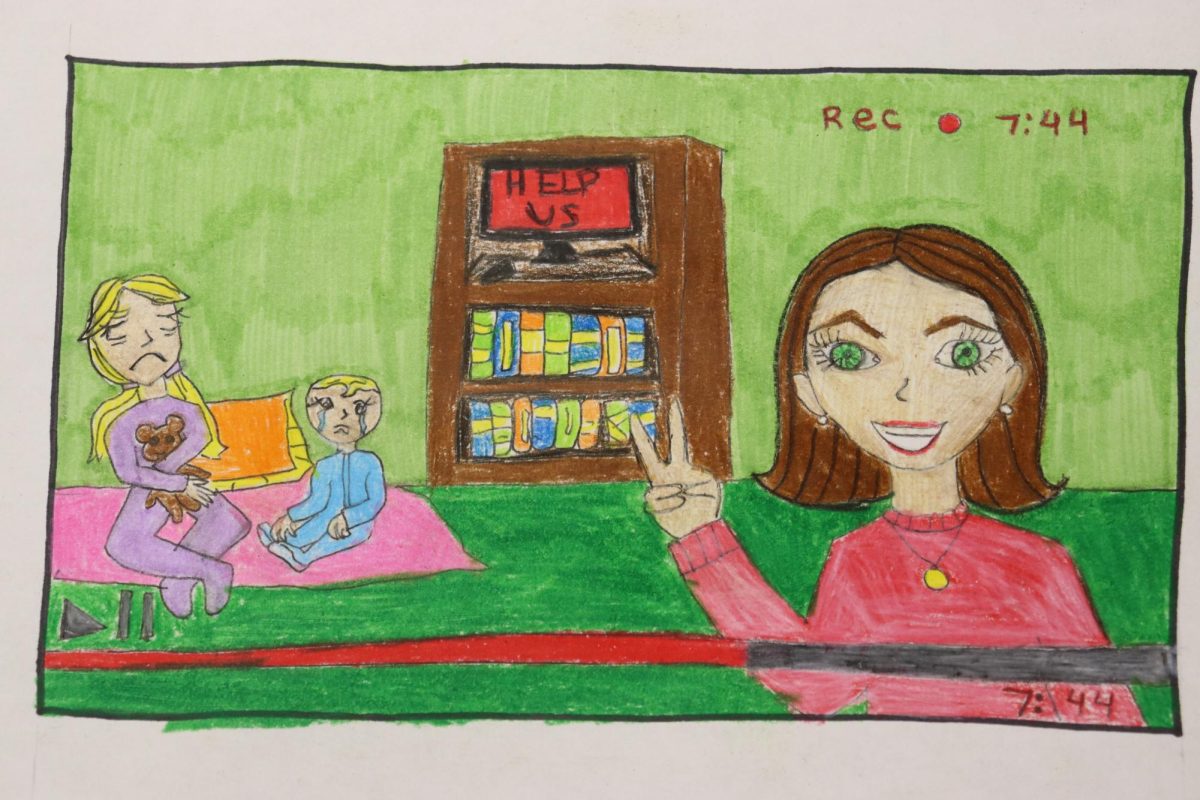In the past 20 years, social media has grown to become a massive part of most people’s lives, raising questions regarding the minimum age of those on the platforms.
In 2005, mommy bloggers started gaining momentum, and with social media and video platforms becoming popular, that slowly evolved into family vloggers.
Shortly after the creation of YouTube, vlogging families began spawning all over the internet, starting as people who filmed their everyday lives and posted videos online.
It took only a few years until they realized the potential profits their channels could bring. Quickly, the vlogs turned into channels that appealed to the algorithm and trends of social media.
Parents seeking fame and profit should not film their children because they cannot consent to the dangers that come with the internet.
One family channel, called DaddyOFive, began vlogging on YouTube in 2015, filming challenges and pranks as well as their everyday life. The more freaked out their kids were in the videos, the more views they got. Eventually, the family took their pranks too far, ending in them losing custody of two of their children.
After DaddyOFive, family channels continued to change and evolve with the trends, ending in the scary modern-day version seen today. Instead of pranks, families post videos that surface the dirty water of the internet.
When imagining the viewers of family channels, we often assume that they are children or women, but this is proven false. Looking at their analytics, many of the channels have large percentages of middle-aged male viewers.
Videos such as those which include doctor visits or talking about puberty suspiciously are the most viewed on many channels. The most watched parts of the videos are those which show the children’s mouths or feet, common fetishes among child sex offenders.
One mother, Allison Irons, found that videos of her children were embedded on pedophile websites and predator playlists. Her videos appeared next to many questionable ones including bath and breastfeeding videos.
After removing the ability for viewers to embed her videos onto third-party websites, Iron’s male viewer percentage dropped from 40 percent to 17 percent.
Keeping their children safe is the number one priority for any parent, and posting photos and videos of their children online is neglecting that priority.
The children are in an ongoing internet trap inside of their own homes, and there is little to no escape because their job is their lives.
Furthermore, the money made off of their exploitation belongs to their parents. Oftentimes, these families have lavish lifestyles, but the children may never see the profits of their hard work.
The parents on these vlogs exploit their children for their own personal gain, intentionally putting them in harm’s way to support their lifestyle. Allowing these parents to continuously post content of their children is letting them get away with negatively affecting their kids’ lives and borders on child abuse.
The children are not able to consent to their online presence, and when they become adults, they may not want their entire childhood online for the world to view. What is posted on the internet now will affect the children as they grow into adulthood, no doubt influencing their future jobs, relationships, and most importantly, their mental health.
Concerns for the overwork and lack of benefits for the children can be prevented with a simple addition to Child Entertainment Laws, clarifying that they also apply to children on the internet.
Laws related to family vlogging need to be revised in order to end the easy access of predator-enticing content and to protect the futures of the children involved.
Opinions expressed in editorials are those of the writer(s). These views may not represent the adviser, The Prowler, advertisers/sponsors, the Starr’s Mill High School administration or staff , or Fayette County Public Schools as a whole. Please see our FAQs for more information pertaining to the rights of The Prowler’s staff members.


